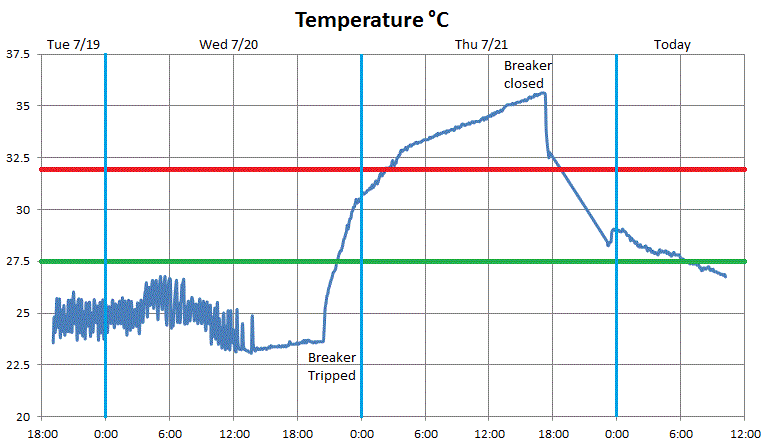From the World's Greatest Newspaper, aka WGN-Chicago:
Slate's Farhad Manjoo examines the phenomenon:
The rest of the Web long ago did away with auto-playing music, Flash buttons and menus, and elaborate intro pages, but restaurant sites seem stuck in 1999. The problem is getting worse in the age of the mobile Web—Flash doesn't work on Apple's devices, and while some of these sites do load on non-Apple smartphones, they take forever to do so, and their finicky navigation makes them impossible to use.
When you visit many terrible restaurant websites in succession, it becomes obvious that they're not bad because of neglect or lack of funds—these food purveyors appear to have spent a great deal of money and time to uglify their pages. Indeed, there seems to be an inverse relationship between a restaurant's food and its site. The swankier the place, the worse the page. Chez Panisse, Alice Waters' Berkeley temple of simple, carefully sourced local cuisine, starts with a pointless, grainy five-second clip of what looks like a scene from a Fellini movie. Alinea, the Chicago molecular gastronomy joint, presents you with a series of menu buttons that aren't labeled; you've got to mouse over each one to find out what you're about to click on.
Not all is lost. I spoke to a few restaurateurs who've created great, easy to use, elegant sites, and they all said they were motivated by one thing: They were missing out on traffic from mobile devices. The steakhouse chain Morton's, for instance, has a mobile site that uses your GPS location to get you information on the restaurant closest to you. The site loads up quickly, and lets you make a reservation in a matter of seconds. "We wanted to keep the bells and whistles at a minimum," Roger Drake, the company's head of marketing, told me.
Not only did I agree with Manjoo wholeheartedly, but I also started thinking about steak...
What happens when two air conditioners together draw more than 15 amps on a 15-amp circuit? This:

(Click to see full-size.)
The graph not only shows how quickly the place warmed up when the breaker tripped Wednesday evening, but also how slowly it cooled off once I closed the breaker. The initial cliff-like dive in temperature yesterday at 5:15pm happened because after turning the AC back on, I put a box fan next to the server rack and shut down two of the servers. You can see the temperature bumped up a degree when I turned them back on around 11:15pm.
So far today the servers are staying within their safe zone, under 27.5°C. The massive thunderstorms that just pushed through, which have kept the outside temperature under
24°C so far today, has helped. Tomorrow, however, the forecast calls for
34°C again.
How long until October?
It appears the air conditioners back at IDTWHQ have failed, while I'm 1,700 km away:

The chart starts at 7pm Chicago time Tuesday. The squiggle shows the backup air conditioner cycling on and off while it's in "energy saving" mode. That stops around 2pm yesterday, when, I imagine, the backup failed. Then, at 8:30pm last night, the main seems to have stopped.
I'll be leaving San Antonio on an earlier flight. I just hope the A/C units have simply stopped, and that they'll start again when I turn them on. Chicago's forecast calls for a high of 34°C today only going down to 24°C overnight. But without cooling, Inner Drive's poor servers may not last another two hours...
Or, how I learned to stop worrying and love the boilerplate:
/*
* Copyright (c) 1995, 2008, Oracle and/or its affiliates. All rights reserved.
*
* Redistribution and use in source and binary forms, with or without
* modification, are permitted provided that the following conditions
* are met:
*
* - Redistributions of source code must retain the above copyright
* notice, this list of conditions and the following disclaimer.
*
* - Redistributions in binary form must reproduce the above copyright
* notice, this list of conditions and the following disclaimer in the
* documentation and/or other materials provided with the distribution.
*
* - Neither the name of Oracle or the names of its
* contributors may be used to endorse or promote products derived
* from this software without specific prior written permission.
*
* THIS SOFTWARE IS PROVIDED BY THE COPYRIGHT HOLDERS AND CONTRIBUTORS "AS
* IS" AND ANY EXPRESS OR IMPLIED WARRANTIES, INCLUDING, BUT NOT LIMITED TO,
* THE IMPLIED WARRANTIES OF MERCHANTABILITY AND FITNESS FOR A PARTICULAR
* PURPOSE ARE DISCLAIMED. IN NO EVENT SHALL THE COPYRIGHT OWNER OR
* CONTRIBUTORS BE LIABLE FOR ANY DIRECT, INDIRECT, INCIDENTAL, SPECIAL,
* EXEMPLARY, OR CONSEQUENTIAL DAMAGES (INCLUDING, BUT NOT LIMITED TO,
* PROCUREMENT OF SUBSTITUTE GOODS OR SERVICES; LOSS OF USE, DATA, OR
* PROFITS; OR BUSINESS INTERRUPTION) HOWEVER CAUSED AND ON ANY THEORY OF
* LIABILITY, WHETHER IN CONTRACT, STRICT LIABILITY, OR TORT (INCLUDING
* NEGLIGENCE OR OTHERWISE) ARISING IN ANY WAY OUT OF THE USE OF THIS
* SOFTWARE, EVEN IF ADVISED OF THE POSSIBILITY OF SUCH DAMAGE.
*/
/**
* The HelloWorldApp class implements an application that
* simply prints "Hello World!" to standard output.
*/
class HelloWorldApp {
public static void main(String[] args) {
System.out.println("Hello World!"); // Display the string.
}
}
Andrew Binstock, editor of Dr. Dobb's, has a pair of editorials in praise of and instruction to create small classes:
High levels of complexity, generally measured with the suboptimal cyclomatic complexity measure (CCR), is what the agile folks correctly term a "code smell." Intricate code doesn't smell right. According to numerous studies, it generally contains a higher number of defects and it's hard — sometimes impossible — to maintain. ...
My question, though, is how to avoid creating complexity in the first place? This topic too has been richly mined by agile trainers, who offer the same basic advice: Follow the Open-Closed principle, obey the Hollywood principle, use the full panoply of design patterns, and so on. All of this is good advice; but ultimately, it doesn't cut it. ...
...[Y]ou need another measure, one which I've found to be extraordinarily effective in reducing initial complexity and greatly expanding testability: class size. Small classes are much easier to understand and to test.
In Part 2, in which Binstock responded to people who had written him about the first editorial:
Coding classes as diminutive as 60 lines struck other correspondents as simply too much of a constraint and not worth the effort.
But it's precisely the discipline that this number of lines imposes that creates the very clarity that's so desirable in the resulting code. The belief expressed in other letters that this discipline could not be consistently maintained suggests that the standard techniques for keeping classes small are not as widely known as I would have expected.
Both editorials make excellent points. Every developer should read them.
The UK Independent's Jon Rantoul won't be using clichés any time soon:
Normally, though, politicians are the worst offenders. It is not clear how much they themselves are to blame, or how much they are simply overwhelmed by the substandard drafting of civil servants and speech writers. Perhaps they lack the time to put a pen through it and rewrite it themselves. It is a national scandal that the Civil Service provides such ghastly drafting of official documents, full of turgid abstractions that are intended, perhaps unconsciously, to conceal the thinness of the content. As for speeches, what do politicians pay their speech writers for?
The Prime Minister's speech on NHS reform last week was a shocker for clichés: "pillar to post; in the driving seat; frontline; level playing field; cherry picking; one-size-fits-all; reinvent the wheel; let me be absolutely clear; no ifs or buts". If each of those were not on the List [of banned clichés] before, they are now.
The Daily Parker has adopted the list, effective immediately.
As threatened, I've gotten a public photo page at SmugMug (http://punzunltd.smugmug.com).
You can now browse the few that I've published so far, and possibly even buy one. It's not incredibly impressive right now as I don't have full-size copies of much yet. That will change, though. I'm having a lot of fun with Adobe Lightroom and its one-click integration with SmugMug, too.